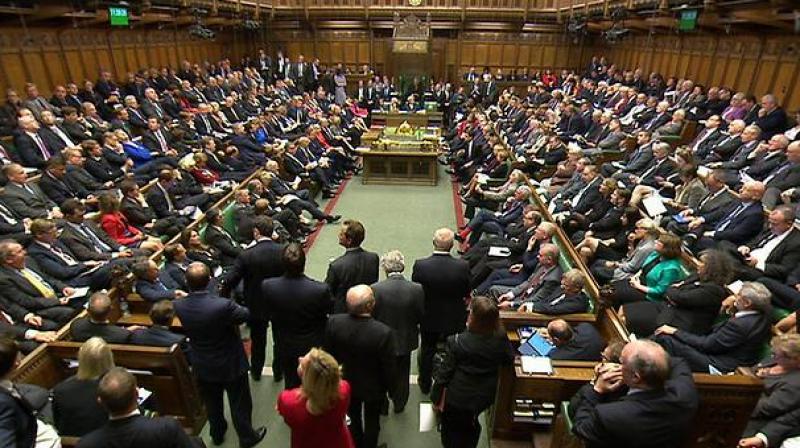British lawmakers take first step to starting Brexit

London: Britain takes a key step towards leaving the European Union on Tuesday as lawmakers begin debating whether to empower Prime Minister Theresa May to embark on the historic divorce.
MPs will hold their first discussion on legislation giving the government the power to trigger Article 50 of the EU's Lisbon Treaty, opening two years of negotiations on leaving the bloc.
While the bill is expected to pass the House of Commons, it could be delayed in the upper House of Lords as May's Conservative Party does not have a majority there.
The government had sought to exclude parliament, insisting it had the power to trigger Article 50 on its own, but the Supreme Court last week ruled it must consult lawmakers.
A majority of both houses of parliament opposed Brexit, but May has urged them to respect the result of the June referendum, when 52 percent of Britons voted to end the country's four-decade membership of the EU.
"I hope that when people come to look at the Article 50 bill they will recognise it is a very simple decision: do they support the will of the British people or not?" she told reporters on Monday.
May is under intense pressure to push the bill through quickly, having promised EU leaders that she will trigger Article 50 by the end of March.
Decision already made
At just 143 words, the European Union Notification of Withdrawal Bill has been tightly drafted, making it difficult to amend either to delay the government's plans or to tie its hands in the talks.
Opposition Labour leader Jeremy Corbyn has promised not to block the bill, but his party like the wider country is deeply divided over Brexit and a large minority of his MPs are expected to rebel.
Dozens of May's Conservative MPs are also opposed to her plan to pull Britain out of the single market when it leaves the EU, fearing the damage to one of the bloc's biggest economies.
But most have promised to back the government, as long as ministers keep parliament informed on their strategy and the course of the negotiations.
"It is not a bill about whether or not the UK should leave the EU, or how it should do so," Brexit secretary David Davis said ahead of the debate.
"It is simply about implementing a decision already made, a point of no return already passed."
Several opposition MPs have submitted amendments to kill the legislation in its preliminary phase, but they are unlikely to succeed.
A vote on Wednesday allowing the bill to move to its next stage is viewed as largely procedural.
Over three days next week, however, the Commons will consider more substantive amendments on issues such as access to Europe's single market.
There are also demands for greater involvement from the devolved parliaments of Wales, Scotland and Northern Ireland, with the latter two voting in June for Britain to remain in the EU.
The bill will then move to the Lords for debate from February 20, with the government hoping for their approval by March 7.
The Times newspaper said this could mean that Britain, the first country to vote to leave the EU would trigger Article 50 at an EU summit on March 9-10.
The Article 50 process gives Britain just two years to negotiate its departure and, it hopes, a new trade deal with the EU before it leaves.
But the European Commission's Brexit negotiator Michel Barnier has said the talks must be wrapped up by October 2018 to give the EU and national parliament’s time to ratify the final agreement. May has promised that parliament will be able to vote on the final divorce deal agreed with Brussels.

